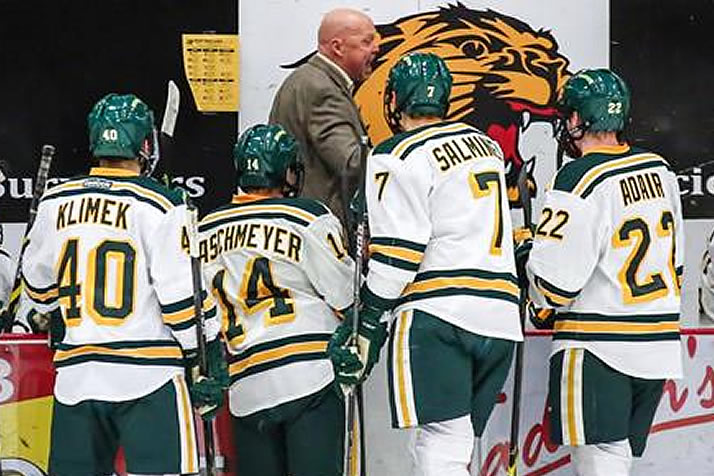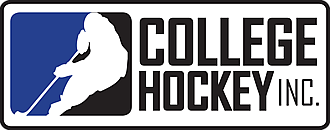Monday, November 23, 2015
20 Questions for Coaches
Recruits who ask intelligent questions are more likely to catch the attention of NCAA hockey coaches.

Coaches ask a lot of questions when recruiting prospective players, trying to find the right fit for their program.
NCAA Hockey Recruiting | College Commitments
What many recruits don’t realize, however, is that coaches want you to ask them questions as well. It’s a great way to show genuine interest in their school and to ensure that their program is a fit for you.
With that in mind, here are 20 questions you might consider asking when an NCAA coach calls or makes a recruiting visit.
How would you best describe your coaching style?
Every coach has a particular style that involves different motivational techniques and discipline. You need to know if a coach’s teaching style matches your learning style.
What expectations do you have for training and conditioning?
Try to learn the school’s commitment to a training and conditioning program – and what will be expected of you.
What are your practices like?
College hockey’s favorable practice-to-game ratio puts tremendous emphasis on development.
What role do you see me playing?
Try to get a sense of how you fit in a coach’s plan. Most will not promise things like power-play time, but can give you a sense of what they would expect.
When would you expect my college career to begin?
Some players can contribute to a college program immediately out of high school while others may need to spend time at the junior level.
Academics
How good is the department in my major? What are graduates of the program doing after school?
These responses will help answer the school’s commitment to academics and the fit in your anticipated field of study.
What percentage of players on scholarship graduate?
Each team has an NCAA-measured Graduation Success Rate (GSR) that assesses how many student-athletes complete their degrees.
What academic support programs are available to student-athletes?
Many schools provide tutors and other methods to assist student-athletes with managing their workload.
If I have a diagnosed and documented disability, what kind of academic services are available?
Special academic services may help you achieve your academic goals.
How many credit hours should I take in season and out of season?
It is important to determine how many credit hours are required for your degree and what pace you will follow to obtain that degree.
Are there restrictions in scheduling classes around practice?
NCAA rules prevent you from missing class for practice.
Is summer school available? If I need to take summer school, will it be paid for by the college?
You may want to take summer school to meet academic and/or graduation requirements.
College Life
What is a typical day for a student-athlete?
The answer will give you a good idea of how much time is spent in class, practice, study and travel. It also will give you a good indication of what coaches expect.
What are the residence halls like? Do all athletes live on campus?
The response should give you a hint of what campus life would be like. You might also ask about the number of students in a room, co-ed dorms and the rules governing life in the residence halls.
Financial Aid
How much financial aid is available for both the academic year and summer school? What does your scholarship cover? How long does my scholarship last?
Scholarships can cover tuition, room and board, books and potentially more if the school offers “full cost of attendance” scholarship packages.
Exactly how much will the athletics scholarship be? What will and will not be covered?
Not all NCAA athletic scholarships are “full rides.” It is important to understand what college expenses your family is responsible for so you can arrange to pay those. Educational expenses can be paid with student loans and government grants, but it takes time to apply for them. Find out early so you can get something lined up.
Am I eligible for additional financial aid? Are there any restrictions?
Sometimes a student-athlete cannot accept a certain type of scholarship because of NCAA limitations. If you will be receiving other scholarships, let the coach and financial aid officer know so they can determine if you may accept additional dollars.
Under what circumstances would my scholarship be reduced or canceled?
Scholarships may be offered for four years, but can be renewable year-to-year as well. The college or university may have a policy governing renewal of athletics aid.
Are there academic criteria tied to maintaining the scholarship?
Student-athletes must make progress toward their degree to remain eligible to compete and schools may apply additional requirements, like a minimum grade-point average, to scholarships.
What scholarship money is available after eligibility is exhausted to help me complete my degree?
It may take longer than four years to complete a college degree program, or you may want to complete your degree should you sign a pro contract early. Many colleges assist student-athletes financially as they complete their degrees. Ask how such aid is awarded.
